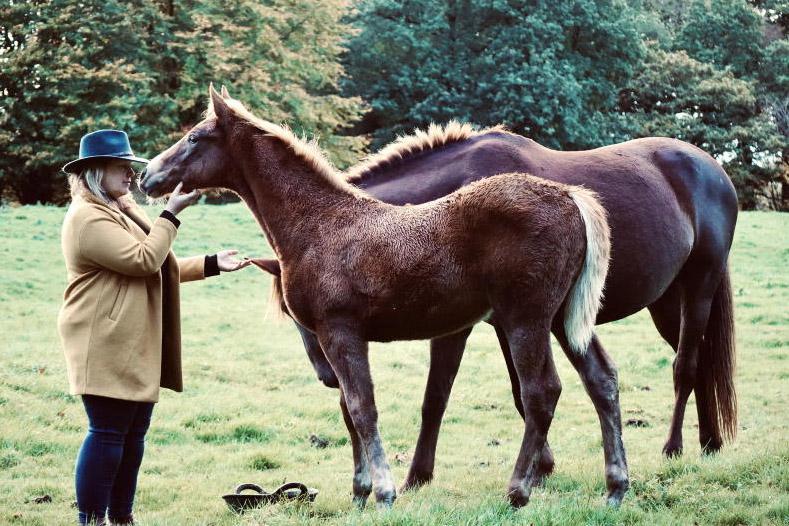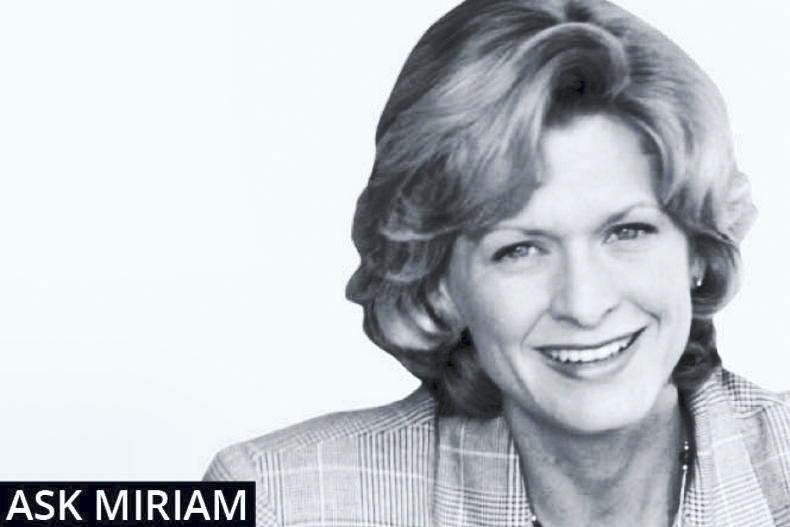Pandemic lockdowns may now be a bad memory but their impact can still be felt, especially amongst young people that missed signifcant rites of passage during those days.
For some, this affected their mental health. Now there is advancing concern in rural areas, after researchers highlighted that wellbeing and mental health amongst teens in the west of Ireland has declined, while “depressive tendencies” increased.
Academics at the Unesco Child and Family Research Centre and School of Psychology recently published a report entitled ‘Adolescent Mental Health: Adversity Profiles and Trends in the West of Ireland’.
Based on results from surveys of more than 15,000 young people in three counties – Galway, Mayo and Roscommon – between 2018 and 2022, the report on mental health and wellbeing also found that health behaviours, such as sleep and physical activity, and support from parents, peers and schools were associated with better mental health outcomes.
The report examined statistics from ‘Planet Youth’ surveys where pupils in fourth year in secondary schools in the three counties self-reported on a range of topics.
This survey found that youths who lived on a farm had the lowest levels of perceived social support out of all of the groups surveyed.
It was also highlighted that for perceived friend support, those on a farm reported the lowest level of support out of all the groups.
Reaching out
So how do young people in rural Ireland find the support they need?
One service which has a significant impact on young people is Limerick Youth Service’s Youth Mental Health Advisory Panel (YAP) and rural wellness hubs, which were developed after the organisation identified a number of barriers facing young people in rural areas.
Michael Lynch, member of Limerick Youth Service, says the support he received allowed him to fight his depression and suicidal thoughts.

Michael Lynch is a member of the Limerick Youth Service.
“I genuinely wouldn’t be here without them,” he says.
“I feel lucky, as I know counselling doesn’t work for everyone.
“Last year, we held a conference and I got up to speak about what I had gone through, particularly around
lockdown when I had suicidal thoughts.”
Limerick Youth Service inspired Michael to apply to the CAO to study psychology as he hopes to someday work alongside those who gave him support when he needed it.
“Before I started talking about my problems, I couldn’t see the light at the end of the tunnel,” he says. “Just talking allowed me to drag myself out of it a lot quicker.”
Lorna Keenan: Sheep farmer and UCD food and agribusiness management student

Lorna Keenan.
“Nowadays young people have a lot of pressure placed on them, whether that be from family, peers or society.
“As someone who is an anxious person, there have been times where I have struggled to keep a positive mental attitude. Covid-19 took a toll on my generation’s mental health as many of us missed out on key moments such as finishing school or having a normal university experience.
“At the time, a lot of young people probably didn’t realise the actual impact it was going to have as many of us felt isolated with no peers to talk to about our online course or even find a common ground with.
“It sometimes feels like we are playing catch-up on those mistakes we’re supposed to make whilst trying to find ourselves at the same time.”
Fin Walsh: Farmer and TikTok influencer

Fin Walsh.
“I originally built my social media following around the life of a young farmer and issues farmers face, such as mental health.
“I received a good reaction to these videos, with I’d say 90% of the comments being positive, but then I started receiving hate comments and death threats online. I tried to let it go over my head but it was extremely hard and I often only remembered the negative comments, those are the ones that stick.
“There have been times, like many other farmers, where I was working 16-hour days, but it gets to an inevitable point where you crash, both physically and mentally.
“Over this past decade, the mental health of farmers has gained a lot of traction but I think sometimes it’s forgotten that young farmers struggle too.
“With increasing prices, there is a fear of the future and I think it’s important that is recognised in a transparent way. Thankfully, there are a lot of options and resources now for young people to get help; you can even avail of online counselling and therapy. I myself, have reached out and attended therapy sessions, which I found a great help.
“The brain is such a complicated thing and you’ll nearly always feel a bit better if you even share your worries. It’s a lot easier for two people to try to comprehend something and make sense of everything.”
•If you have been affected by any of the issues raised in this article, you can freephone the Samaritans 24 hours a day for confidential support at 116 123 or email jo@samaritans.org.
•Alternatively, the contact information for a range of mental health supports is available at mentalhealthireland.ie/get-support.
•In the case of an emergency, or if you or someone you know is at risk of suicide or self-harm, dial 999/112.
Read more
TUS named Ireland's first ADHD friendly University
Health special: coping with the unexpected side of farming
Pandemic lockdowns may now be a bad memory but their impact can still be felt, especially amongst young people that missed signifcant rites of passage during those days.
For some, this affected their mental health. Now there is advancing concern in rural areas, after researchers highlighted that wellbeing and mental health amongst teens in the west of Ireland has declined, while “depressive tendencies” increased.
Academics at the Unesco Child and Family Research Centre and School of Psychology recently published a report entitled ‘Adolescent Mental Health: Adversity Profiles and Trends in the West of Ireland’.
Based on results from surveys of more than 15,000 young people in three counties – Galway, Mayo and Roscommon – between 2018 and 2022, the report on mental health and wellbeing also found that health behaviours, such as sleep and physical activity, and support from parents, peers and schools were associated with better mental health outcomes.
The report examined statistics from ‘Planet Youth’ surveys where pupils in fourth year in secondary schools in the three counties self-reported on a range of topics.
This survey found that youths who lived on a farm had the lowest levels of perceived social support out of all of the groups surveyed.
It was also highlighted that for perceived friend support, those on a farm reported the lowest level of support out of all the groups.
Reaching out
So how do young people in rural Ireland find the support they need?
One service which has a significant impact on young people is Limerick Youth Service’s Youth Mental Health Advisory Panel (YAP) and rural wellness hubs, which were developed after the organisation identified a number of barriers facing young people in rural areas.
Michael Lynch, member of Limerick Youth Service, says the support he received allowed him to fight his depression and suicidal thoughts.

Michael Lynch is a member of the Limerick Youth Service.
“I genuinely wouldn’t be here without them,” he says.
“I feel lucky, as I know counselling doesn’t work for everyone.
“Last year, we held a conference and I got up to speak about what I had gone through, particularly around
lockdown when I had suicidal thoughts.”
Limerick Youth Service inspired Michael to apply to the CAO to study psychology as he hopes to someday work alongside those who gave him support when he needed it.
“Before I started talking about my problems, I couldn’t see the light at the end of the tunnel,” he says. “Just talking allowed me to drag myself out of it a lot quicker.”
Lorna Keenan: Sheep farmer and UCD food and agribusiness management student

Lorna Keenan.
“Nowadays young people have a lot of pressure placed on them, whether that be from family, peers or society.
“As someone who is an anxious person, there have been times where I have struggled to keep a positive mental attitude. Covid-19 took a toll on my generation’s mental health as many of us missed out on key moments such as finishing school or having a normal university experience.
“At the time, a lot of young people probably didn’t realise the actual impact it was going to have as many of us felt isolated with no peers to talk to about our online course or even find a common ground with.
“It sometimes feels like we are playing catch-up on those mistakes we’re supposed to make whilst trying to find ourselves at the same time.”
Fin Walsh: Farmer and TikTok influencer

Fin Walsh.
“I originally built my social media following around the life of a young farmer and issues farmers face, such as mental health.
“I received a good reaction to these videos, with I’d say 90% of the comments being positive, but then I started receiving hate comments and death threats online. I tried to let it go over my head but it was extremely hard and I often only remembered the negative comments, those are the ones that stick.
“There have been times, like many other farmers, where I was working 16-hour days, but it gets to an inevitable point where you crash, both physically and mentally.
“Over this past decade, the mental health of farmers has gained a lot of traction but I think sometimes it’s forgotten that young farmers struggle too.
“With increasing prices, there is a fear of the future and I think it’s important that is recognised in a transparent way. Thankfully, there are a lot of options and resources now for young people to get help; you can even avail of online counselling and therapy. I myself, have reached out and attended therapy sessions, which I found a great help.
“The brain is such a complicated thing and you’ll nearly always feel a bit better if you even share your worries. It’s a lot easier for two people to try to comprehend something and make sense of everything.”
•If you have been affected by any of the issues raised in this article, you can freephone the Samaritans 24 hours a day for confidential support at 116 123 or email jo@samaritans.org.
•Alternatively, the contact information for a range of mental health supports is available at mentalhealthireland.ie/get-support.
•In the case of an emergency, or if you or someone you know is at risk of suicide or self-harm, dial 999/112.
Read more
TUS named Ireland's first ADHD friendly University
Health special: coping with the unexpected side of farming












SHARING OPTIONS